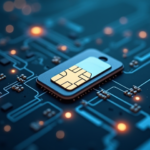In the digital age, a VPN is your first line of defense in maintaining online privacy and security. However, users often ask, “Can a VPN be hacked?” This post will explore over five potential vulnerabilities of VPNs and provide you with actionable strategies to reinforce your security while using GnuVPN.
Understanding VPN Vulnerabilities
The Myth of Infallible Security
Firstly, it’s essential to acknowledge that no security system is entirely impervious to threats. A VPN encrypts your data and conceals your IP address, but under certain conditions, it may be vulnerable to sophisticated cyber attacks.
Common Vulnerabilities in VPNs
Here are some vulnerabilities that can affect VPNs:
- Software Flaws: Unpatched software can create openings for cybercriminals.
- Weak Encryption Standards: Not all VPNs use state-of-the-art encryption methods.
- Server Security: The physical security of servers is as crucial as digital.
Top 5+ Vulnerabilities of VPNs and Prevention Tactics
Outdated Encryption
Outdated encryption methods may easily fall prey to hackers, subsequently exposing your sensitive data to potential threats. To mitigate this risk, it is advisable to use GnuVPN. This service employs the robust AES-256 encryption, a standard that is widely trusted and utilized by governments and security experts across the globe.
DNS Leaks
DNS leaks occur when your queries pass outside the encrypted VPN tunnel. Prevention Tip: GnuVPN includes DNS leak protection to ensure all requests are securely routed.
Server Compromise
If a VPN server is hacked, user data can be compromised. Prevention Tip: GnuVPN’s servers are fortified with advanced security measures to prevent unauthorized access.
Malware and Spyware
Malicious software can breach a device and monitor VPN activity. Prevention Tip: Regularly scan your device for malware and only download GnuVPN from the official website.
Account Theft
Cybercriminals can steal VPN login credentials through phishing attacks. Prevention Tip: GnuVPN encourages two-factor authentication and secure password practices for account safety.
Enhancing Your VPN’s Security
Keep Your VPN Updated
Enable Kill Switch
GnuVPN’s kill switch feature cuts off all internet traffic if your VPN connection drops, keeping your data from leaking.
Use Multi-Factor Authentication
For an added layer of security, enable multi-factor authentication on your GnuVPN account to prevent unauthorized access.
FAQs on VPN Security
Is It Realistic to Worry About a VPN Hack?
It’s unlikely, especially with a reputable VPN provider like GnuVPN, but awareness of potential vulnerabilities is vital.
What Should I Do If I Suspect a VPN Breach?
Change your passwords, update your VPN software, and contact GnuVPN support immediately for assistance.
Can Government Agencies Hack VPNs?
While governments have vast resources, using a reputable VPN with strong encryption, like GnuVPN, significantly reduces this risk.
Conclusion
While a VPN can theoretically be hacked, providers like GnuVPN invest heavily in security to minimize this risk. By staying informed and taking proactive steps, you can enjoy the robust protection offered by your VPN with peace of mind.





